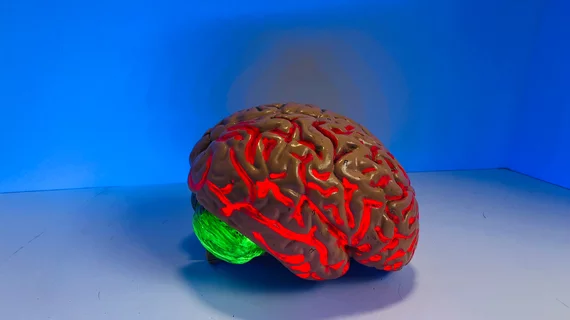AI combining contrast-enhanced and non-contrast CT accurately identifies brain metastases
Deep learning can more accurately distinguish early brain metastases when using both contrast-enhanced and non-contrast CT scans, according to new research published in the European Journal of Radiology.
Researchers designed a model capable of automatically detecting the spread of brain cancer by combining contrast-enhanced and non-contrast imaging, comparing it to models that only use contrast scans. The retrospective study included 116 CTs of 116 patients, all of whom underwent brain scans with and without contrast and had confirmed brain metastases.
A total of 659 metastases were present—428 were used for training and validation, and 231 for testing. When the deep learning model was applied, the combined contrast and non-contrast exams produced a higher positive predictive value compared to contrast-only exams (44% versus 37.2%). The results of the study also showed a higher sensitivity rate and decreased number of false positives with the use of both scans.
“The information on true contrast enhancement through comparison of contrast-enhanced and non-enhanced images may improve the performance of the deep learning object detection model and suppress false positives by preventing the detection of pseudolesions as brain metastases,” Hidemasa Takao, MD, PhD, with the Department of Radiology, Graduate School of Medicine at the University of Tokyo, and co-authors noted.
Patient outcomes after the discovery of brain metastasis can be abysmal, but earlier detection can result in earlier treatment and a better overall prognosis. The authors suggest their results could benefit these patients by discovering the spread of their cancer sooner and expediting their treatment accordingly.
You can read the detailed study in the European Journal of Radiology.

